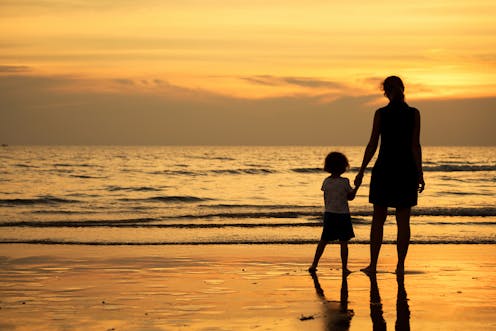How COVID-19 has trapped temporary visa holders
- Written by The Conversation

At the first sign of lockdown due to COVID-19 in Australia and across the globe, there were concerns domestic and family violence would increase[1] in prevalence and intensity. It was also feared that, at the same time, conditions would prevent women from coming forward.
We have now gathered data[2] showing these fears were well founded.
But what of the specific situation of temporary visa holders?
Our study[3] of 100 cases during the first Victorian lockdown has illuminated the urgent need to remove barriers to support for temporary visa holders. It has also highlighted the need for changes to Commonwealth law and policy, so perpetrators are no longer able to use migration status as a means to control and abuse women.
This propensity is captured in the quote from one of the women in our study, Aruna, whose partner threatened to send her back to her country of birth if she called 000 for help.
Previous research[4] has demonstrated that for women without permanent residency or citizenship, the experience of domestic and family violence is compounded by immigration threats and their exclusion from many of the supports[5] available to victims. These can include income, housing, medical and legal services.
The pandemic has intensified the impact of exclusion, while also highlighting the persistent use of migration status as a threat.
In our latest report released today, 70% of perpetrators of violence against the women were Australian citizens or permanent residents. Threats to have women “deported by immigration” were noted in 55% of cases. Threats to withdraw sponsorship (for women holding temporary partner visas) were made in 60% of cases.
Women said their greatest fear was being killed or harmed by the perpetrator (70%). But they also feared being forced to leave the country, including leaving Australian-born children with their Australian father (31%).
The fear of returning home is potent for some women. One of those surveyed, Tasneem, said she feared the perpetrator would follow her. A note from her file reads:
[Tasneem] is also extremely concerned that her abusive partner will force her to return to [country of origin] where he will hurt and/or kill her. Tasneem has separated from him, but they remain legally married and she is dependent on him for her visa. She is not entitled to Centrelink payments and has no source of income. She has no friends or family in Australia and the perpetrator refuses […] to allow her to contact her family back home.
Tasneem’s case highlights the critical absence of support for women in this situation, including the impact of their exclusion[6] from JobSeeker and JobKeeper.
In our study, 70% of women who had paid employment lost their jobs due to COVID-19. Lack of money is clearly linked to a lack of options in escaping family violence. Seeking security in these circumstances can mean remaining with an abusive partner to ensure children are fed and have beds to sleep in. This is also in part a consequence of the limited availability of safe housing options.
Recent Australian research[7] on women experiencing domestic and family violence during COVID-19 has shown the shortage in safe housing options [8] has been acute.
In our study, housing was a key issue for two-thirds of the women. The specific housing issues varied: for some women who lived alone, the accommodation was unsafe because the perpetrator had previously lived there, knew the address and had a key. In other cases, women were couch-surfing with their children, relying on friends who were also under financial and other pressures due to COVID-19.
Read more: How do we keep family violence perpetrators ‘in view’ during the COVID-19 lockdown?[9]
Some women stayed with their abusive partners because they had nowhere else to go. When we spoke with case managers, we were told some clients had been offered the airfare home be other services because there were no available resources in Australia to help them.
What we have observed in our research is not particular to the pandemic. It is a manifestation of our society’s continued failure to address the support needs of female temporary visa holders who experience domestic and family violence.
This is not simply about money, though providing immediate access to ongoing income, housing and other support is critical. What we really need to do is reshape the conversation: put perpetrators using migration processes as threats in view and offer better support to those who are suffering.
No woman (or child) should have to compromise their personal safety because of a lack of access to support. Women have been described as the “shock absorbers[10]” of the pandemic. As we emerge from this health crisis, we need a bold vision that achieves better outcomes for women, particularly those made vulnerable by their migration status domestic and family violence.
Read more: Coronavirus and 'domestic terrorism': how to stop family violence under lockdown[11]
References
- ^ domestic and family violence would increase (www.unwomen.org)
- ^ data (bridges.monash.edu)
- ^ Our study (bridges.monash.edu)
- ^ Previous research (bridges.monash.edu)
- ^ many of the supports (awava.org.au)
- ^ the impact of their exclusion (static1.squarespace.com)
- ^ Recent Australian research (bridges.monash.edu)
- ^ shortage in safe housing options (bridges.monash.edu)
- ^ How do we keep family violence perpetrators ‘in view’ during the COVID-19 lockdown? (theconversation.com)
- ^ shock absorbers (reliefweb.int)
- ^ Coronavirus and 'domestic terrorism': how to stop family violence under lockdown (theconversation.com)

















